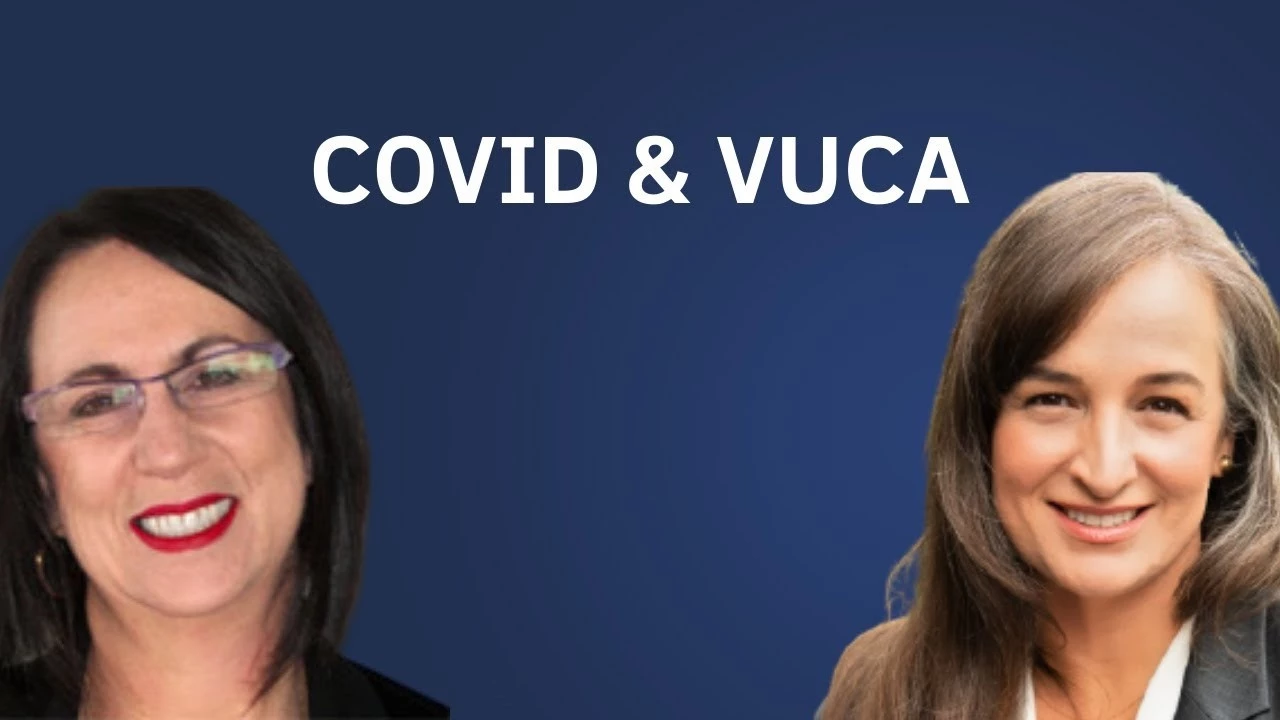Bonus Episode: COVID-19 and VUCA: Volatility, Uncertainty, Complexity and Ambiguity

The last episode was an interview with Janet Sernack on living and adapting to VUCA – Volatility, Uncertainty, Complexity and Ambiguity. But I wanted to spend more time with Janet and share my conversation with my community in real time. So last week I called Janet during my weekly live Facebook session. And this Bonus episode is a recording of that chat. My goal is for you to be as informed and prepared as you can possibly be to live and work during a time of unprecedented VUCA.
Quick recap, Janet Sernack is a consultant and coach who helps other coaches like me, leaders and organizations adapt and grow through disruption. Her expertise is in helping society understand what it means to BE innovative and adaptive to change. She helps embed innovation in organizations that are experiencing the shockwaves of disruptive change in our VUCA world. Normally that would mean market disruption, new technologies, and new ways of working, and so on. Janet helps businesses and leaders to be open to new and creative ways and new commercial possibilities. What I also like about Janet is that her expertise is delivered by an amazingly calm energy. This is how I want people to explain VUCA to me! I need her tone of voice, her positive warmth at this moment.
In this podcast we talk about VUCA and also about Black Swan events in this context of the COVIDd-19 outbreak. She gives some great examples, great explanations as well as coping mechanisms we can all adopt.
Understanding VUCA:
Volatility means that there are a number of surprising random and unexpected events. Volatility is the speed of change.
Uncertainty is what COVID-19 has created more than anything.
Complexity is the multiplex of forces. We have a lot of complex problems to solve, that can't be solved anymore through conventional thinking.
Ambiguity is the haziness of reality, or lack of clarity.
What we can do:
The first thing that is really critical to do is in these times is find your tribe: Like-minded, generous and collaborative people, as opposed to coming from a scarcity mindset and being competitive.
Find out the facts and what's really going on. It is better to look at actual data in observing what is happening around us.
Adopt an entrepreneurial mindset: entrepreneurs are the people are agile and nimble "flow" with VUCA. Entrepreneurs are used to experiencing triumphs and defeat in business. So they are more flexible with the times and very self-disciplined people.
Unplugging is really key because it does relax your autonomic nervous system and you will be less anxious.
I hope you enjoyed this bonus episode.
Transcript of this episode
About the Host
Hello, I’m Renata Bernarde, the Host of The Job Hunting Podcast. I’m also an executive coach, job hunting expert, and career strategist. I teach professionals (corporate, non-profit, and public) the steps and frameworks to help them find great jobs, change, and advance their careers with confidence and less stress.
If you are an ambitious professional who is keen to develop a robust career plan, if you are looking to find your next job or promotion, or if you want to keep a finger on the pulse of the job market so that when you are ready, and an opportunity arises, you can hit the ground running, then this podcast is for you.
In addition to The Job Hunting Podcast, on my website, I have developed a range of courses and services for professionals in career or job transition. And, of course, I also coach private clients.
Contact Renata Bernarde
I’m determined to help you! I want you to feel empowered, nail your next job, and have the career you want.
My free resources for job hunters: The Optimized Job Search: Weekly Schedule & Masterclass.
Learn more about my services, courses, and group coaching: RenataBernarde.com
